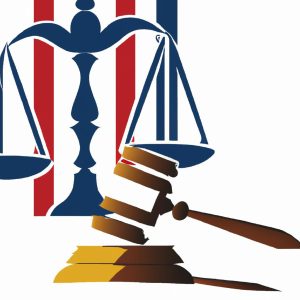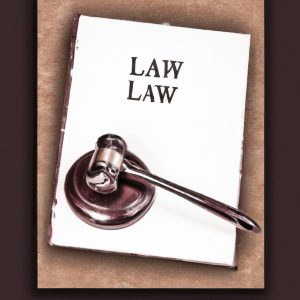Introduction
Settling their estate can be more complex and time-consuming when a loved one passes away without a will. The legal term for this situation is “intestate,” the estate is distributed according to the laws of intestacy in the state where the deceased resided. Settling an estate without a will in New York requires adherence to specific legal procedures and can vary in duration based on various factors. Morgan Legal Group PLLP, a reputable law firm located in New York City, is here to provide a comprehensive guide on how long it takes to settle an estate without a will in New York. In this detailed blog, we will explore the legal process of intestate estate settlement, the key factors affecting the timeline, and the necessary steps for an efficient settlement.
Understanding the Process of Settling an Estate Without a Will
Before delving into the timeline for settling an estate without a will, it is essential to have a clear understanding of the intestate estate settlement process in New York.
1. Filing for Letters of Administration
When there is no will, a close family member or interested party must petition the Surrogate’s Court to become the estate administrator. This person manages the estate’s affairs and distributes assets to the rightful heirs.
2. Inventory of Assets
The administrator’s first task is to conduct a comprehensive inventory of the deceased’s assets, including real estate, bank accounts, investments, personal belongings, and other valuable items.
3. Asset Appraisal
The administrator may need to engage professional appraisers to determine the fair market value of certain assets, such as real estate and valuable personal property.
4. Notification of Creditors
The administrator must notify creditors of the deceased’s passing, giving them a specified period to submit any outstanding claims against the estate.
5. Payment of Debts and Taxes
The administrator must settle any outstanding debts, taxes, and administrative expenses the estate owes before distributing assets to the heirs.
6. Asset Distribution
Once all debts, taxes, and expenses are settled, the administrator can distribute the remaining assets to the deceased’s heirs based on intestacy laws.
Factors Affecting the Duration of Intestate Estate Settlement
Several key factors can influence the timeline for settling an estate without a will:
1. Complexity of the Estate
The complexity of the deceased’s estate is one of the most significant factors affecting the settlement duration. Larger estates with multiple assets and businesses may require more time for accurate valuation and distribution.
2. Court Caseload
The workload of the Surrogate’s Court can also impact the settlement timeline. If the court has a high number of cases to handle, it may take longer to process and resolve each case.
3. Notification of Creditors
The notification period for creditors to submit claims against the estate can extend the settlement duration if creditors come forward with valid claims.
4. Potential Disputes Among Heirs
Disputes among heirs over asset distribution can significantly prolong the settlement process. Resolving such disputes may require legal proceedings and further delays.
5. Estate Taxes and Debts
The settlement timeline can be affected by the complexity of estate tax calculations and the amount of outstanding debts that need to be settled.
The Intestate Estate Settlement Timeline
While the duration of settling an estate without a will can vary, there is a general timeline for the various stages of the intestate estate settlement process in New York:
1. Petition for Letters of Administration
The process typically begins within a few weeks after the deceased’s passing. A family member or interested party files a petition for Letters of Administration with the Surrogate’s Court.
2. Inventory and Appraisal of Assets
The inventory and appraisal of the deceased’s assets can take several months, depending on the estate’s complexity and the appraisers’ responsiveness.
3. Notification of Creditors
Creditors are usually given around six months to submit claims against the estate. This period allows sufficient time for creditors to come forward and file any valid claims.
4. Debt and Tax Settlement
Paying off debts, taxes, and administrative expenses owed by the estate can take several months, depending on the complexity of the financial affairs.
5. Asset Distribution
The final stage of the settlement process is the distribution of assets to the deceased’s heirs, which can take several months to complete, especially if there are disputes or complex assets to distribute.
Efficiency Measures for a Timely Intestate Estate Settlement
While the settlement process for an estate without a will can be time-consuming, there are measures that the administrator can take to ensure a timely settlement:
1. Engage Legal Assistance
Seek the expertise of experienced estate planning lawyers, like those at Morgan Legal Group PLLP, to navigate the settlement process efficiently and avoid potential pitfalls.
2. Timely Completion of Documents
Ensure all required documents and forms are completed accurately and submitted promptly to the Surrogate’s Court.
3. Open Communication
Maintain open and transparent communication with the heirs, informing them of progress and potential delays.
4. Resolve Disputes Amicably
If disputes arise among heirs, aim to resolve them amicably through mediation or negotiation to avoid prolonged legal battles.
Conclusion
Settling an estate without a will, also known as intestate estate settlement, involves a series of legal procedures and can vary in duration based on various factors. While the process can be complex and time-consuming, it is crucial to navigate it efficiently to ensure a timely distribution of assets to the rightful heirs.
For comprehensive legal assistance and guidance in intestate estate settlement matters, contact Morgan Legal Group PLLP. Our team of experienced estate planning lawyers is dedicated to providing you with the support and expertise needed to navigate the settlement process effectively and protect the deceased’s estate for the heirs.





